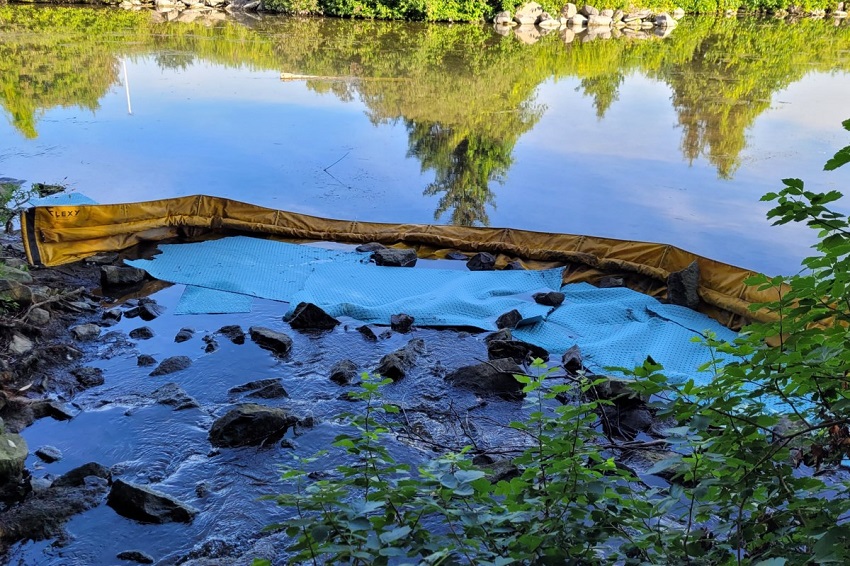Enid, Okla. — A diesel spill at the University of Oklahoma’s duck pond last week has sparked concerns for local wildlife. The spill occurred after a malfunction in a power plant pump released approximately 25 gallons of diesel fuel, contaminating the pond’s water and putting several ducks at risk.
According to the Oklahoma Department of Environmental Quality (DEQ), around 20 gallons of diesel were contained by university staff, but approximately five gallons of the fuel made its way through a storm drain and into the pond. The presence of diesel was first reported on March 6, prompting a swift response from university officials, environmental teams, and wildlife rescue organizations.
Wildcare Oklahoma was called in after reports emerged of ducks in distress at the pond. Kenna Chamlee, a representative with Wildcare, stated that the team noticed the immediate signs of contamination when they arrived, including visibly wet ducks, an indication that they had already come into contact with the hazardous substance.
“We went there, and we could see visibly some of the ducks were already wet,” Chamlee said. “That was not a good sign for us.”
Upon arrival, Wildcare staff identified the area most affected by the spill and quickly began rescuing the ducks. In total, eight ducks were captured and transported to the Wildcare Oklahoma facility for treatment. These ducks are now being quarantined and monitored for signs of poisoning.
Diesel fuel is toxic to wildlife, and ingestion can cause serious health issues, including internal damage and even sudden death. Paul Rusinko, also with Wildcare Oklahoma, expressed concern over the potential long-term effects on the ducks.
“Diesel can cause some pretty bad issues internally if they ingest a lot,” Rusinko said. “Sudden death is a big, major thing that we’re looking for.”
To treat the affected ducks, Wildcare veterinarians are using a mixture of diluted Dawn dish soap to clean the animals and remove any remaining diesel. Mattie Yates, a veterinarian with Wildcare, explained that the ducks are being closely monitored to ensure they do not suffer from further complications.
“We’ve got a highest dilution of 5% with our Dawn dish soap all the way down to 1%,” Yates said. “We took a couple of feathers so that today we can figure out what the best approach is going to be.”
In response to the incident, the University of Oklahoma issued a statement assuring the public that they were monitoring the situation and working to confirm the original source of the contamination. University officials also commended the efforts of Wildcare Oklahoma, acknowledging the organization’s critical role in the conservation and rehabilitation of wildlife in the state.
“We are monitoring the situation and working to confirm the original source,” the university’s statement read. “On March 6, we were alerted to what appeared to be diesel fuel in the duck pond. When the presence of diesel was confirmed, SET Environmental was contacted and immediately began the containment and cleanup process, using booms to prevent the diesel from leaving the site and traveling downstream.”
SET Environmental, a local cleanup company, worked quickly to contain the spill and prevent further spread of the diesel. Once the fuel was contained, they began removing it from the surface of the water. The DEQ and the City of Norman were both informed of the situation and have been involved in overseeing the remediation efforts.
The diesel spill at the University of Oklahoma’s duck pond serves as a reminder of the potential hazards that industrial malfunctions can pose to wildlife. While the situation remains under control for now, Wildcare Oklahoma’s continued care and the university’s ongoing cleanup efforts are critical in ensuring the safety and health of the affected ducks.

